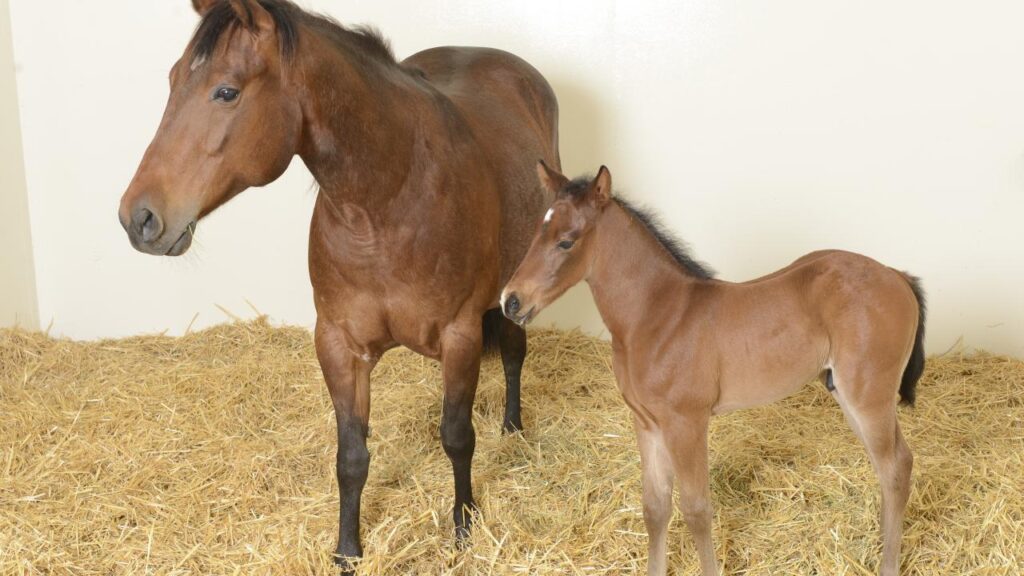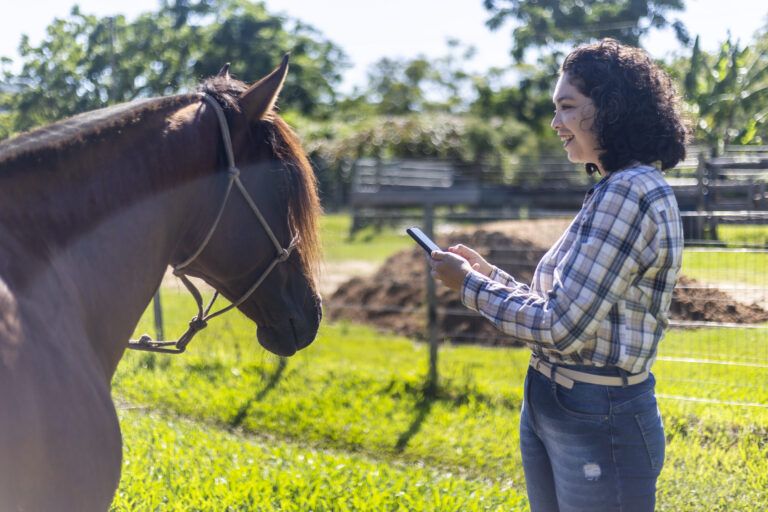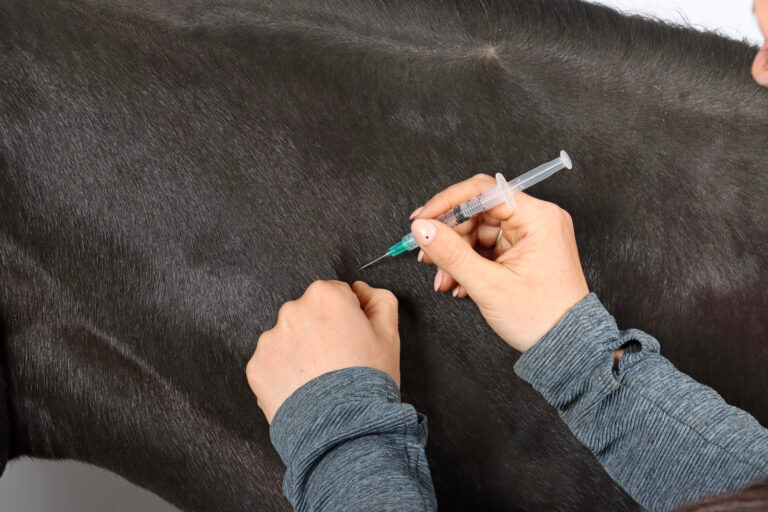
Researchers at the UC Davis School of Veterinary Medicine marked a milestone in equine assisted reproductive technologies with the first successful use of frozen-thawed sperm for in vitro fertilization (IVF) production of equine embryos. These promising results, just published in Theriogenology, have the potential for broader clinical applications, as well as valuable opportunities to study fertilization and embryo development.
Although IVF is commonly used in many species, from livestock to humans, it has historically been met with little success in horses. Recent advances demonstrated IVF embryo production, but only when using high-quality, fresh sperm, which limits its use. Little is currently known about the use of IVF in equine reproduction, including how embryo development proceeds and whether it differs significantly from other approaches.
Pouya Dini, DVM, Ph.D., Ph.D., DECAR, DACT, an equine reproductive specialist, and his team at the UC Davis Veterinary Assisted Reproduction Laboratory, including Ph.D. student Soledad Martin-Pelaez, DVM, DACT, and Professor Emeritus Stuart Meyers, DVM, MS, Ph.D., DACT, recently reported using frozen-thawed sperm to successfully fertilize equine oocytes and create embryos. They analyzed stages of embryo development, which were compared to those achieved with intracytoplasmic sperm injection (ICSI), the current clinical practice for in vitro production of equine embryos in which a single sperm is injected directly into an oocyte. Overall, development rates were no different, although IVF cycles proceeded faster and embryos were larger, perhaps suggesting a more advanced developmental stage.
In vitro production (IVP) of equine embryos is routinely performed worldwide. It enables production of offspring from mares and stallions that are unable to reproduce using traditional techniques and provides new opportunities for genetic advancement and reproductive success. The ability to use frozen-thawed sperm for IVF further expands reproductive options by enabling the use of stallions that are geographically distant, allowing the use of sperm from stallions that are actively competing (collection is undesirable during competition seasons) or when there is a limitation on the amount of available semen, thus facilitating the rescue of valuable genetics from deceased stallions.
“Our team is excited to advance IVP of equine embryos to overcome historical challenges,” said Dini. “The ability to use frozen-thawed sperm for IVF would be a valuable addition to current equine assisted reproductive technologies and would benefit both stallion and mare owners. This collaborative effort is the first step in evaluating the expansion of future equine IVF applications in the clinic.”
Further research is needed to evaluate the pregnancy outcomes and foals of IVF embryos produced with frozen-thawed sperm. Additionally, Dini and his team are assessing the genomic influence of fertilization techniques on equine embryos, providing further information about the quality of in vitro produced equine embryos.
Support for this study was provided by the UC Davis Center for Equine Health.
Related Reading
- Disease Du Jour: OPU and ICSI in Horses
- Frozen-Thawed Semen Protocol Produces Satisfactory Fertility in Horses
- Historical Perspectives in Equine Reproduction: Pioneers in the Age of Discovery
Stay in the know! Sign up for EquiManagement’s FREE weekly newsletters to get the latest equine research, disease alerts, and vet practice updates delivered straight to your inbox.


![[Aggregator] Downloaded image for imported item #18383](https://s3.amazonaws.com/wp-s3-equimanagement.com/wp-content/uploads/2025/09/30141253/EDCC-Unbranded-29-scaled-1-768x512.jpeg)

